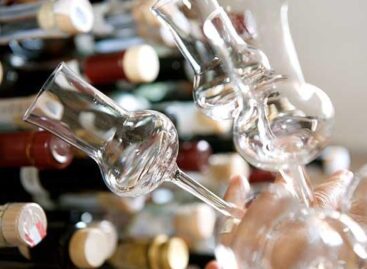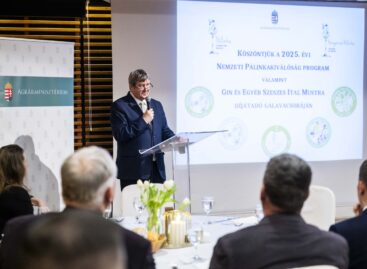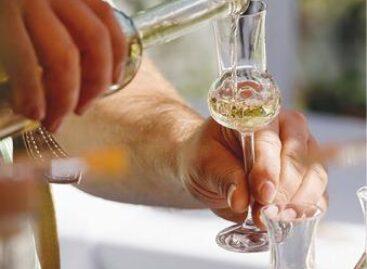A shot glass full of uncertainty
This article is available for reading in Trade magazin 2024/2-3

Dávid Gábor Kovács
marketing director
Zwack
“The domestic pálinka market is difficult to estimate because we don’t know the level of home distilling, but it can be said that free home distilling, bar and restaurant closures due to the pandemic, and declining purchasing power owing to the inflation have reduced the sales revenue of commercial pálinka distilleries in recent years. Zwack’s pálinka portfolio has also been affected by these market changes, so there are fewer flavour variations available, but our well-established core brands and flavours continue to hold their own”, says Dávid Gábor Kovács, marketing director of Zwack. The company’s brands are present both on the shelves of retail outlets and in bars/restaurants.
Unpredictable future

László Nagy
owner
Kunság-Szesz
László Nagy, owner of Kunság-Szesz:
“The future of distilleries is unpredictable for the time being, and we are witnessing significant movements on the producer side. Rising fruit prices and a shortage of the necessary quantities are causing serious problems for pálinka makers. Our Mátyás pálinka is made from top quality fruits, so it is important to modernise production for higher efficiency”.

Péter Bárány
owner
Grand Spirit
“Pálinka sales are steadily declining year by year in both the HoReCa and the retail sector – but it can’t be expected from a commercial distillery to compete with a product made without the costs of distilling professionals’ work, packaging, marketing and taxes”, underlines Péter Bárány, owner of Grand Spirit Kft., the distributor of 6 smaller premium pálinka brands
Flavour variations and traditions

Krisztina Páll
brand manager
Dunapro
Krisztina Páll, brand manager of Dunapro:
“The past two years have brought exciting challenges for Márkházi Pálinkafőzde. We haven’t seen a drop in demand for quality pálinka: despite the inflation crisis, we have realised steady growth in both volume and value. We have opened our second distillery in Pincehely in spring 2023”.

János Szicsek
owner
Szicsek Pálinkafőzde
“Although domestic pálinka sales have decreased in terms of volume, there is a wide variation in terms of product groups. The premium segment is less sensitive, as value sales have increased here. In 2023 supply was tight, with the worst situation caused by the lack of apricots”, analyses János Szicsek, owner of Szicsek Pálinkafőzde.

Gergő Kósa
head of sales
Panyolai Szilvórium
Gergő Kósa, head of sales at Panyolai Szilvórium Zrt.:
“The war in Ukraine has had a big influence on the industry. Ukraine has been the main buyer of pálinka in the Carpathian Basin. We had to reorganise our supply chains. Fortunately, the patented special design glass for our Panyolai Elixir product comes from the EU”.
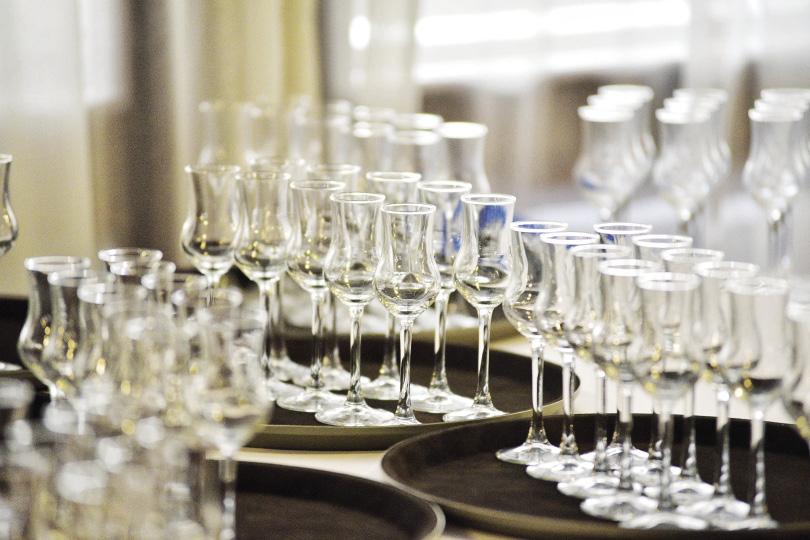
Today, a distillery can be successful through innovation, brand and distribution building and increasing brand awareness
Handicapped market presence
Dávid Gábor Kovács explained that it is more expensive to make good pálinka than vodka, gin or white rum. In terms of added value and production costs, pálinka is like cognac and malt whisky brands, which are aged in barrels for many years, but the pálinka category’s recognition is decades or perhaps a century behind. László Nagy talked to us about the continuous development of their existing retail channels, and establishing closer cooperations to develop the direct sales network, getting in touch with HoReCa units too.
Krisztina Páll emphasised that Márkházi Pálinka is widely available in the market, in every region of Hungary. Bars and restaurants can buy their premium pálinkas from almost any wholesaler, but they can also purchase them directly from the company. János Szicsek told: the competitiveness of pálinka against other spirits is only realistic if the burden on producers is reduced, and this doesn’t depend on the size of the distillery. Distinguishing pálinka from other products is the best way to ensure its acceptance.
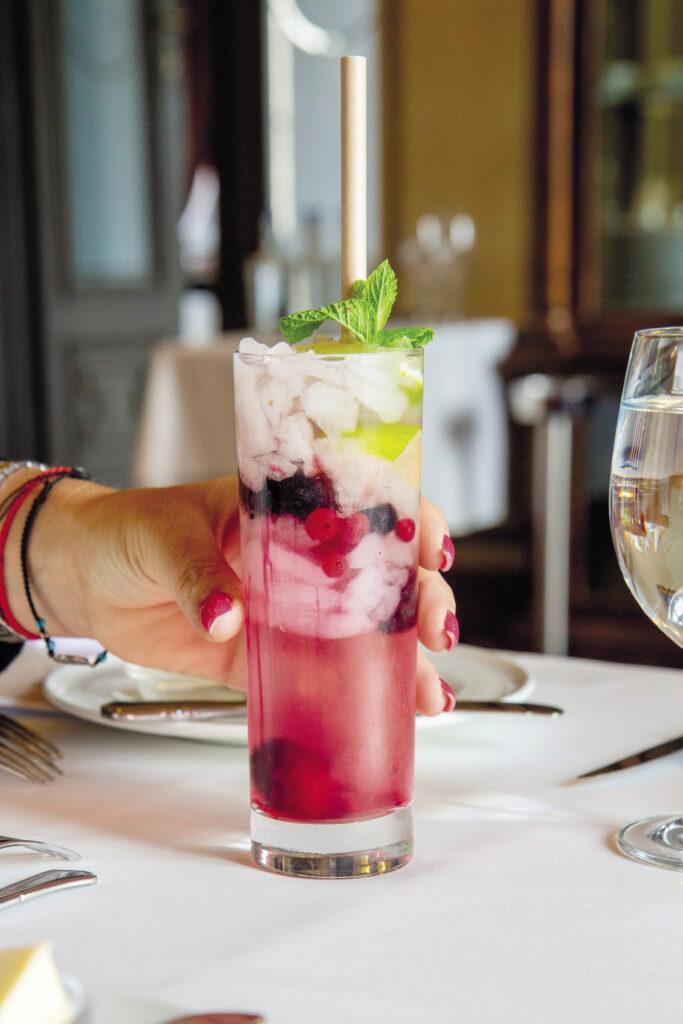
The industry is looking for possible break-out points, one of which may be the pálinka-cocktail
Ways and solutions
Gergő Kósa opined that premium quality pálinka can only be made from high quality fruit. The company’s competitiveness lies in traditional, outstanding quality. Their products can be found at all levels of retail, as well as in HoReCa and at almost every beverage wholesaler. In 2023 they came out with Spiced Gin and Remix Sour Cherry-Raspberry pálinka – the great success of the latter makes the launch of a new product range very likely.
Péter Bárány told that a few years ago a bar would compile its pálinka offering from the products of several distilleries (often with 15-20 different types of pálinka), but today we can find only 3-4 of them, as the shelves have been taken over by excellent rums and gins. He sees the way out in targeted marketing and premium pálinkas. The company has created the “Pálinka Bar” concept: bringing the pálinka of numerous distilleries to selected bars and restaurants, to give the products great visibility in various ways. //
Shrinking volumes in the pálinka category
NIQ’s retail index recorded more than HUF 15bn sales in the pálinka category in the 12-month period between December 2022 and November 2023.


Guest writer:
Katalin Séra
senior analyst
NIQ
This was a nearly 1% drop vs. last year’s sales in value terms, and sales were down 13% in volume. The average price of pálinka increased by 13% to HUF 6,900/litre. Branded pálinkas continue their reign in the segment, accounting for 75% of sales in value. For manufacturer brands Hungarian shoppers paid an average of HUF 7,600/litre, while for private labels they paid HUF 5,400/litre. As regards size, the segment between 0.5 and 0.7 litres is the largest, responsible for 38% of sales. In flavours plum pálinka is the most popular, realising 29% of sales; pear is the second most popular, with a 24% share in total sales. //
No place for the genie in the bottle
We asked László Mihályi, president of the National Council of Pálinka (PNT) about the current problems of the pálinka sector:

László Mihályi
president
National Council of Pálinka
“Once again pálinka is facing several market challenges this year. Unfortunately, the fruit shortage is a problem this year too, with the average yield of some fruits falling significantly due to the extreme weather. Rising fruit prices have also increased the cost of making pálinka, which distillers have been unable and don’t want to pass on fully to consumers. Pálinka sales are also affected by the black market –the illegal selling of home-distilled pálinka. PNT is in close cooperation with the authorities to curb the black market, but the lack of inspection capacity make this task nearly impossible. Representatives of the sector are therefore facing a number of economic problems, about which they are in constant consultation with sectoral leaders and the authorities. Pálinka isn’t just a spirit, it is also a national treasure that should be protected and its producers should be defended from adverse economic effects. Pálinka, our No.1 Hungarian product is in a difficult situation. Consumers are unwilling to pay for the high costs of legal production because, on the one hand, there are cheap home-made variants available and, on the other hand, young people prefer other drinks – gin, whisky, vodka, etc. Foreign competition is also strong in the spirits category. What is more, the production of grain-based spirits is much cheaper than that of fruit-based spirits. The price positioning and image of pálinka is therefore the most important thing today”. //
Related news
Related news
II. Green Gastronomy – Marketing Communication Workshop organized by the MMSZ HoReCa and Green Section
🎧 Hallgasd a cikket: Lejátszás Szünet Folytatás Leállítás Nyelv: Auto…
Read more >Nearly 140 domestic suppliers, 60% growth – SPAR Regions Treasures program accelerates with AI solutions
🎧 Hallgasd a cikket: Lejátszás Szünet Folytatás Leállítás Nyelv: Auto…
Read more >


